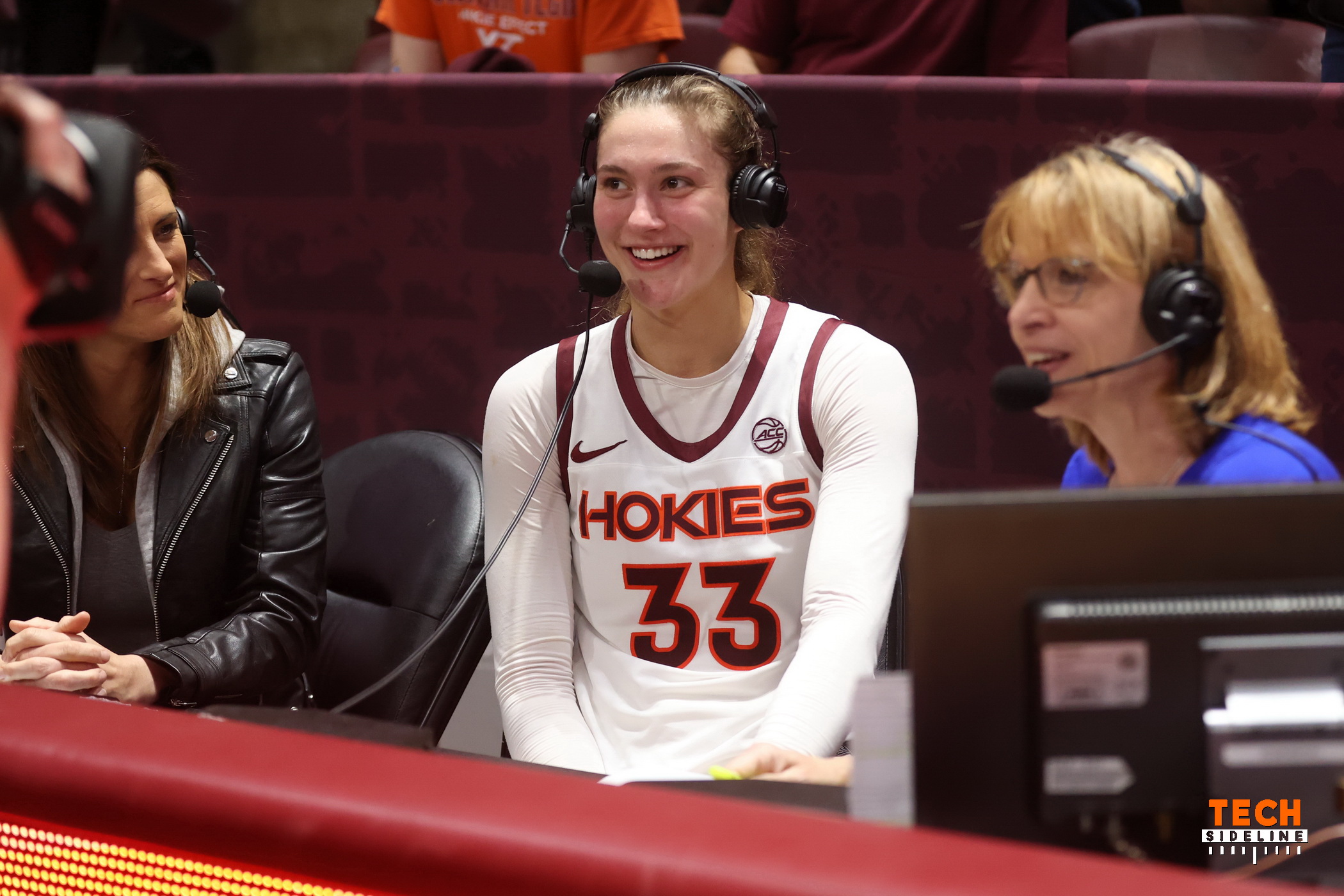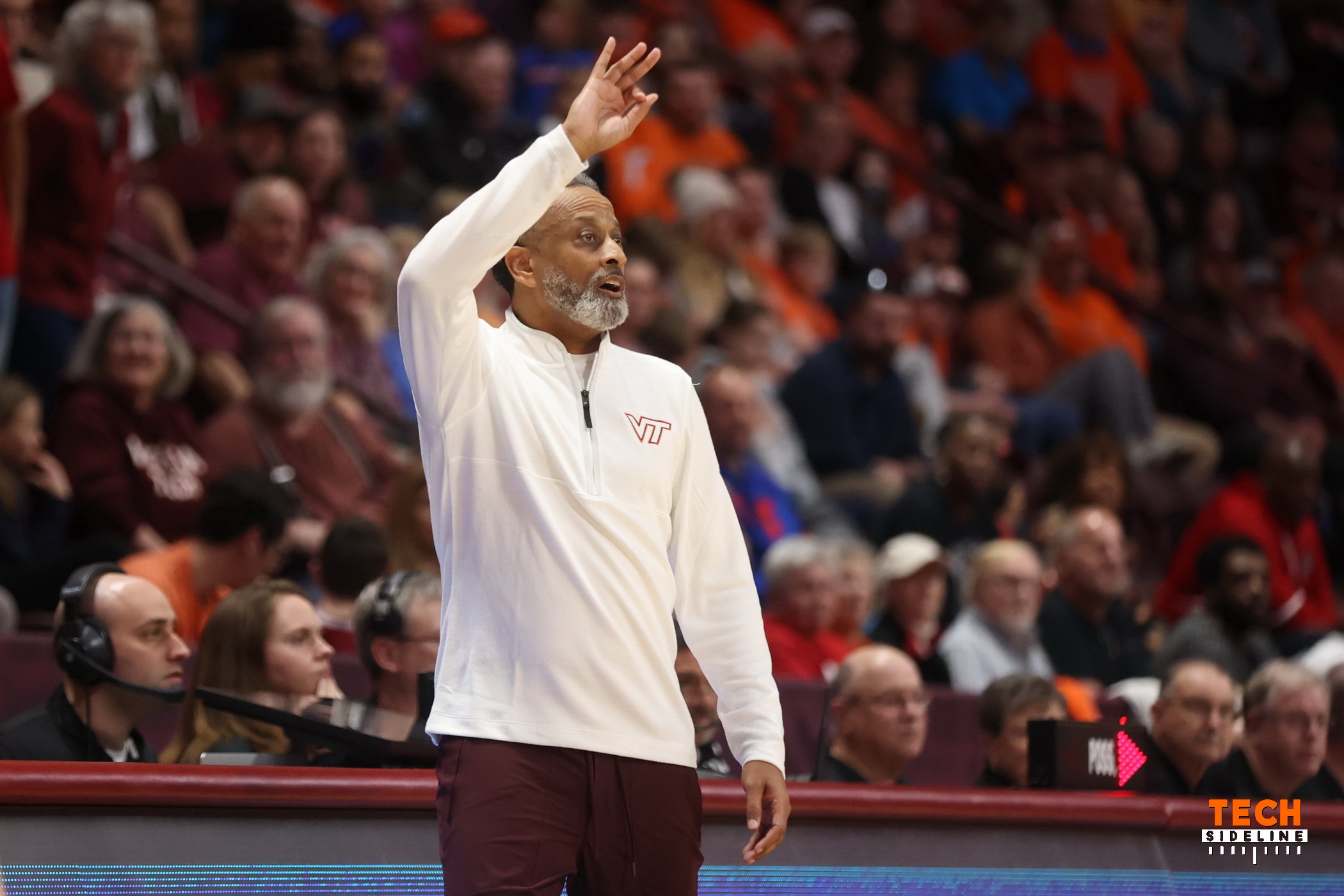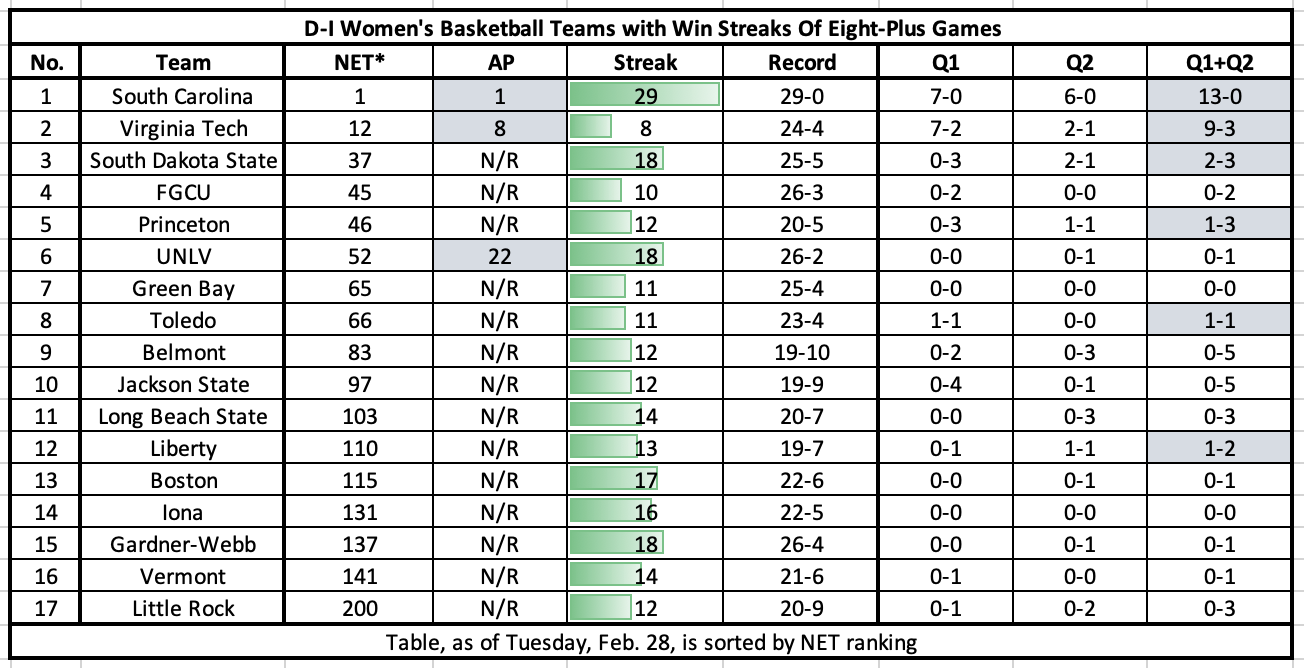
On Jan. 8, Virginia Tech was exposed in Coral Gables by Miami. In a 77-66 win on a Sunday in South Florida, the Hurricanes shot 53% and held Tech to 8-of-28 (29%) from the floor and 2-of-12 (17%) from distance in the second half.
Like the other three losses this season, that was a wake-up call for the No. 8 Hokies (24-4, 14-4 ACC), who are the No. 3 seed in the ACC tournament that tips off in Greensboro, N.C. on Wednesday. Over the last seven-plus weeks, they’re 11-1; the lone blemish was in Cameron Indoor Stadium at No. 13 Duke.
Yet, in the first six years under Kenny Brooks, that stretch might’ve looked different. It might not have included six wins over top-30 teams in the NET by an average of 9.8 points per game. Or eight of the 11 victories decided by double digits. But that’s what the Hokies have been lately – dominant.
Out of the 361 teams in the country, 17 have won eight or more games in a row. Virginia Tech is the lone representative of the group from the ACC; Notre Dame is the only other program with more than two straight victories (six). Here’s a full breakdown:
The Hokies are one of three teams on the list in the AP Top 25 and one of two teams in the top 35 in the NET. While their win streak is the shortest, it’s involved five Quadrant 1 victories. 12 of the schools didn’t even play five games against Q1 and Q2 competition. And No. 1 South Carolina is the only other “power conference” representative.
“I think we’re playing pretty well,” Brooks told the media on Monday’s ACC coaches call ahead of the tournament. “Chemistry is really good, confidence is really high. A lot of accomplishments that we had all year long to be able to put ourselves in position.”
Indeed, the Hokies are dangerous. Currently projected as a No. 2 seed in the NCAA tournament by ESPN’s Charlie Creme, not many teams in the country will be excited to see them in March.
But it’s the way Virginia Tech has gone about its business that’s impressed. In 2019-20, Elizabeth Kitley and Cayla King were true freshmen playing alongside junior Aisha Sheppard and graduate students Taja Cole and Lydia Rivers. That team, which would’ve been the first at Tech to make a return to the Big Dance since 2006 had COVID not sent the world into chaos, finished 21-9 (11-7 ACC) and was 8-5 over the final 13 games.
With each game, day, month and year since then, the Hokies have grown. The 2020-21 season (15-10, 8-8) ended in a second round loss to an Elite Eight team in Baylor. They were a consistent member of the top 25 last year (23-10, 13-5) before falling in the first round of the NCAA Tournament to Florida Gulf Coast.

But similar to what Wes Moore did in turning NC State around, Brooks has shaped Tech into a champion brand. Kitley – the two-time ACC Player of the Year – and King, along with First Team All-ACC honoree Georgia Amoore, have played together for three seasons. Kayana Traylor was an important addition in 2021, and Second Team All-ACC performer Taylor Soule has helped lift the program to new heights.
The most impressive part, however, is how the Hokies have adjusted. Their lone slip-up before the new year was vs. No. 10 Notre Dame. In fact, two of their four performances in which they struggled were against less-equipped teams – at Clemson, at Miami. But to defend Kitley, who finished the regular season averaging 19 and 11, opponents played zone.
Sometimes, the strategy worked. At worst, it frustrated Virginia Tech to no end. Yet, Brooks & Co. found ways to work around it. They were creative in drawing Kitley away from the basket, which led to less mayhem and fouls, and it made them more difficult to defend. And when they realized that they needed to start games faster, they did so. Just ask Florida State, Duke and NC State.
Brooks has often praised how smart and knowledgeable his team is. But the experience – the five starters have over 17,000 minutes and 7,000 points across their careers – cannot be replicated. It was something that, as good as Kitley was two seasons ago when she averaged 18 and 10, previous teams didn’t possess.

“I think the maturity level of this group shows why they can bounce back, why they can be good,” Brooks said. “It’s not very much they haven’t seen, especially with this year. So they’ve adapted to anything and everything that they saw. Early on when we played Miami, we were going through a stretch where surprisingly everybody was in a zone. I felt like they were trying to take away Liz and crowd the paint a little bit and we were trying to get used to it and we saw it so many times in a row that we got really good against the zone. And now people started trying to go back to man-to-man, and we’re pretty good against man-to-man.
“Even if we had ups and downs and lulls in our offense and our defense, we never wavered because they’re so experienced. So I think their ability to adapt because of their maturity gives us a great opportunity to win and advance, even if things don’t go your way for a little while. It can get a little dicey in the tournament because if things don’t go your way, sometimes people hit the panic button because it’s either win or go home. And we’ve shown that we can adapt mid-game.”
This Virginia Tech team showed it was special during the regular season. It finished in a tie for second with Duke and earned the No. 3 seed in the conference tournament, the two best marks in program history. When the university’s name is read on ESPN on Selection Sunday, it’ll be as a top-four seed that will host a NCAA tournament sub-regional.
And when the Hokies open play in Greensboro on Friday night at 8 p.m. ET on the ACC Network, they’ll find a way to play their style of basketball. If an opponent throws the kitchen sink at them? Well, they’ll adjust. It’s what they’ve done all year to get them to this point.













Tech Sideline is Presented By: